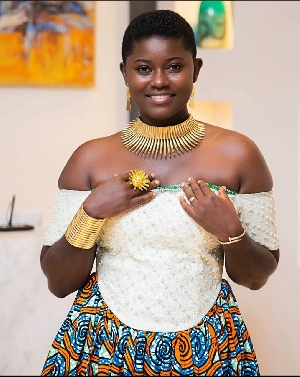The Energy Commission has warned the Ghanaian government of the need to review the terms under which it is participating in the ongoing West African Gas Pipeline Project (WAGP). A senior official of the Commission told the B&FT that, “we believe so far, Ghana’s interest in the multi-million dollar cross-national gas pipeline project has not been secured.”
According to the Commission’s Executive Secretary and Member of Parliament, Kofi Asante, the Commission has identified as unsatisfactory Ghana’s terms with regard to issues of the ownership, regulatory mechanisms, high tariffs and rigid access controls.
The Commission further questions the basis for the Chevron-led Consortium being offered a 15% real return on investment about twice the 7-8% real return demanded in similar gas pipeline projects in the United States and the United Kingdom.
Mr. Asante has also questioned that 20% nominal requirement, insisted on by the consortium, with US inflation expected at 5% over a 20-year time frame.
The Energy Commission accordingly, calls for transparency. “The deal is totally in the hands of Chevron and is structured in a way that commits Ghana to guarantee the capacity payment for pipeline for an initial 20 years at the rate of US$150m a year and to accept a take or pay incentives to bolster domestic exploration for gas and oil.”
Furthermore, it commits the nation to high thermal electricity costs in the order of 4.5 cents per kilowatt instead of 3.5 cents per kilowatt, which would be more reasonable.
The Energy Commission rejects the current terms for WAGP’s 15% real rate of return after tax.
Its argument: In the light of the regulatory framework adopted and used in jurisdictions the world over, 7.8% on total investment or 10% on equity return would seem more reasonable, fair and equitable in the international perspective.
Under the agreement, Chevron will own 36.7% shares while Nigerian National Petroleum Corporation will own 25%.
Two oil companies, SoBeGaz of Benin and ToBeGaz of Togo will own 2% apiece. Shell will take 18% and Volta River Authority (VRA) has 16.3% shares.
The WAGP is to provide Ghana relatively cheap natural gas to produce over 660MW of electricity from the Takoradi Thermal Plant as an alternative to Hydro-electricity.
The project, which is in its Definitional phase, has presidential assent by the Kufuor administration paving the way for the implementation stage.
However, halfway through negotiations critical questions relating to tariffs, transportation, environmental impact, security and real returns remain unanswered.
As the “foundation customer”, Ghana is expected to institute special fiscal regime to provide guarantee for the first 20 years; provide performance guarantees for the Volta River Authority’s (VRA’s) gas payment and bear the cost of West African Pipeline Company’s (WAPCO) administration, secure lands rights and provide special concessions such as tax incentive for over ten years.
Ghana is expected to raise over $150m as equity within the next few years in the project.
Ghana is further more requested to meet other obligations including taking steps to facilitate the acquisition of projects investment separately and in conjunction with neighbouring countries.
Meanwhile, the Finance Minister, Yaw Osafo-Maafo (MP) has denied assertions the government has not done enough scrutiny before signing the agreement with Chevron. He told the paper that issues raised by the Energy Commission and the Bank of Ghana have been addressed.
“However, information reaching B&FT states that London and US offices of the gas project have begun intensive discussions on the issues raised by the Commission.”
Click to view details



Business News of Monday, 10 February 2003
Source:
Gas pipeline may raise cost of Electricity
Entertainment















